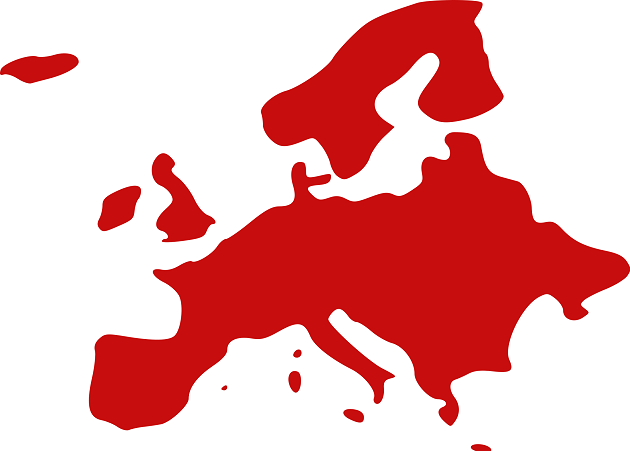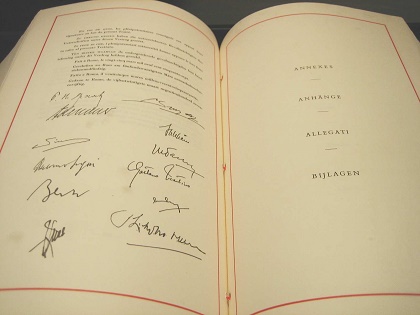Is the exit-strategy (like the one seen with Brexit) the only way forward amidst the widespread dissatisfaction towards the EU?
 Europe. / Wikimedia (CC)
Europe. / Wikimedia (CC)
A summary of a reflection of the Commission on Ethics and Society of the Italian Evangelical Alliance on the occasion of the 60th anniversaries of the Treaties of Rome.
Sixty years ago (March 25th, 1967) the Treaties of Rome were signed and this event was a boost for European integration. After a bloody war, Europe was transformed into a international space of peace, democracy and welfare for its more than 500 million people. The anniversary gives the opportunity for a reflection on the past and the future of Europe.
EVANGELICALS AND EUROPE
The evangelical contribution to the shaping of European identity has been significant at different levels. European culture, politics, and society were largely shaped by Christian values, ideals and people, with the evangelical voice be one among those. It is true to say that Roman Catholic, Orthodox and Protestant actors have given significantly different shades to their “Christian” contribution and these differences cannot be minimized.
While much attention has been given to European ethos and Christian roots, little attention was given to the institutional architecture of the European Union. One of the results of this lack of attention is that while Christians discussed about values and roots the EU grew out of proportion in its claims and competencies over European nations and citizens. Europe was given a parliament without legislative power; the common currency was introduced without the necessary checks and balances given by a political authority; a Commission of non-elected leaders was given authority over millions of people. European bureaucrats and financial interests gave form to the EU institutions without a clear model in front of them.
 The signature page on the original Treaty of Rome. / Wikimedia (CC)
The signature page on the original Treaty of Rome. / Wikimedia (CC)Anti-european sentiments are spreading out in Europe. Some of them are worrying signs of provincial populism and inward-looking nationalism. However, does not the EU have the responsibility of not being clear on what it stands for and how it wants to achieve its vision? After 60 years the question is: what is the EU? Values and roots are important, but what about the overall institutional architecture?
TOWARDS A FEDERAL EUROPE
The nature of the EU is not clear and there is no sign of what the future lies. Much talk of European “integration” is void of institutional content. What does “integration” mean? A European super-state swallowing national sovereignty and differences? A confused system like it is today? Is the exit-strategy (like the one seen with Brexit) the only way forward amidst the widespread dissatisfaction towards the EU?
In 2003 the Italian EA issued a study document inviting evangelicals in Europe to explore the possibility given by federalism as a way forward for Europe as far as its institutional outlook is concerned. In a federal system, citizens vote their representatives to do few things together: foreign policy and common currency and few more things. The rest is left to national states.
Europe should think of itself as a community of peoples and the federal model is the best suited one to coordinate both the global issues that Europe has to face while respecting its diversities.
A COMPASS FOR THE FUTURE
It is important to nurture the moral vision of Europe because without it everything else will fall apart. Among the things that shape a moral vision here some important values:
The pursuit of justice requires that financial and economic interests should be always integrated by the respect of fundamental human rights and the welfare of the people. Public policies need to reflect the aspiration for justice.
The importance of intermediate bodies (families, schools, churches, associations, etc.) which are the social infrastructure. The dialectic state-individual citizen should always include a proper space for the flourishing of intermediate bodies.
Religious freedom should respect religious pluralism and grant fair opportunities for all. Pluralism should be seen as a positive feature of a healthy society. Churches should not seek social privileges.
We hope that this 60th anniversary will provide an opportunity for evangelicals to re-engage the debate over the future of Europe with boldness and courage.
Read more contents produced by the Italian Evangelical Alliance by visiting their website.
Summary by Valeria Marzano and Leonardo De Chirico.

Las opiniones vertidas por nuestros colaboradores se realizan a nivel personal, pudiendo coincidir o no con la postura de la dirección de Protestante Digital.
Si quieres comentar o